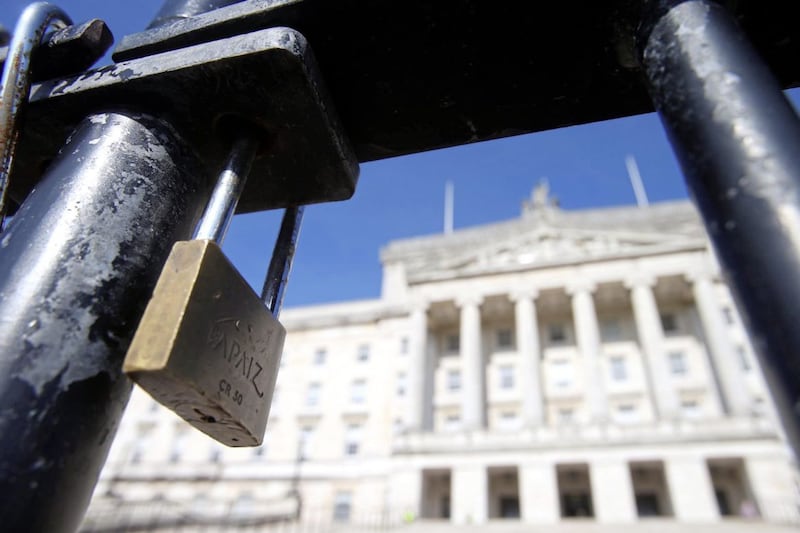THE sad departure of Tom Petty for the great arena in the sky recalled how much pleasure he gave us with those anthems, Free Fallin' and I Won't Back Down.
The latter was adopted as a campaign song by the Irish Labour Party in the 1992 general election in the south.
Their leader, Dick Spring, was taunted about it later when his party went into coalition with political opponents Fianna Fáil.
But it was a move that benefited the peace process, which needed the pioneering FF leader, Albert Reynolds, as head of government at that difficult time.
The same defiant Tom Petty number could be applied to the political behaviour of the Democratic Unionist Party and Sinn Féin over the last nine months.
As I write, there seems to be progress towards restoring the Stormont Executive - and not before time.
A recent query from an academic researcher had me foraging through the pages of my book on the Good Friday Agreement, entitled The Far Side of Revenge.
What strikes one, going back to that time, is the number of powerful political office-holders who were fussing over the parties and putting them under pressure to reach a deal.
Congressman Peter King told me President Clinton was on the phone "all during the night" when the talks were in their final stage.
Tony Blair had already arrived on the scene to say it wasn't a time for soundbites, prior to delivering the biggest soundbite of all when he said he felt "the hand of history on our shoulder".
Then-taoiseach Bertie Ahern had to cope with the death of his mother Julia at the start of the week but still made it to Castle Buildings.
The world was watching and waiting and, when the deal was struck, it became something of a template for other troubled lands and regions such as the Basque Country and Colombia - the latter is now being cited in turn as an exemplar for strife-torn Afghanistan.
Think also of the massive issues at stake. Prisoner releases were confronted and dealt with; decommissioning of weapons was fudged, but with the door left open to what proved to be a resolution of the issue further down the road.
The idea that these enormous difficulties could be faced up to and handled to the satisfaction of the leaders on both sides, whereas an agreement could not be reached in more recent times on the relative status of the Irish language and Ulster-Scots, simply beggars belief.
Unfortunately, or maybe not, major world figures are currently preoccupied with other matters.
When considering Donald Trump's attributes, the words "diplomacy" and "patient negotiating skills" do not leap to mind, so perhaps it's just as well if he's not on the phone to Arlene Foster and Michelle O'Neill.
Likewise, given Theresa May's Fawlty Towers performance at the Conservative conference, you would hardly classify her as a smooth operator.
Those of us standing on the side-lines and gazing in astonishment at the bizarre Belfast impasse on cultural matters could only hope that sheer embarrassment might force the parties to reach a positive conclusion.
Set aside Tom Petty's I Won't Back Down, not to mention Abba's The Winner Takes It All and think instead of John and Yoko singing Give Peace A Chance.
The DUP need a restoration of the Executive in order to access the fruits of their deal with Theresa May and the Tories.
Sinn Féin need to get their ducks in a row for the southern general election but the long-running Stormont stand-off has damaged the party's image, raising questions about their political competence and commitment to the peace process: Taoiseach Leo Varadkar and Fianna Fáil leader Micheál Martin have both taken the opportunity to have a swipe at them.
Meanwhile, the death of Liam Cosgrave who was taoiseach from 1973 to 1977 was a further occasion of sadness: even those who disagreed with his hard-line approach on security issues found him personally likeable.
A very different figure from that era, Seamus Costello, died in October 1977, as part of one of those wretched republican feuds, and his 40th anniversary occurred last week.
Despite his record as a militant activist, Costello was one of the first to advocate ending the policy of abstentionism towards Dáil Éireann.
He was the star performer at an event called The Boston Forum in September 1975, where he debated with leading loyalists such as Andy Tyrie and Glen Barr.
Radical legend Noel Browne praised his "scintillating display of good humour, history, politics and hard facts".
A charismatic personality with a strong left-wing outlook, Costello's approach to the peace process, if he had lived, would have been most interesting.
But he was shot dead at the age of 38 years. The gun should have no place in Irish politics.
@ddebreadun








